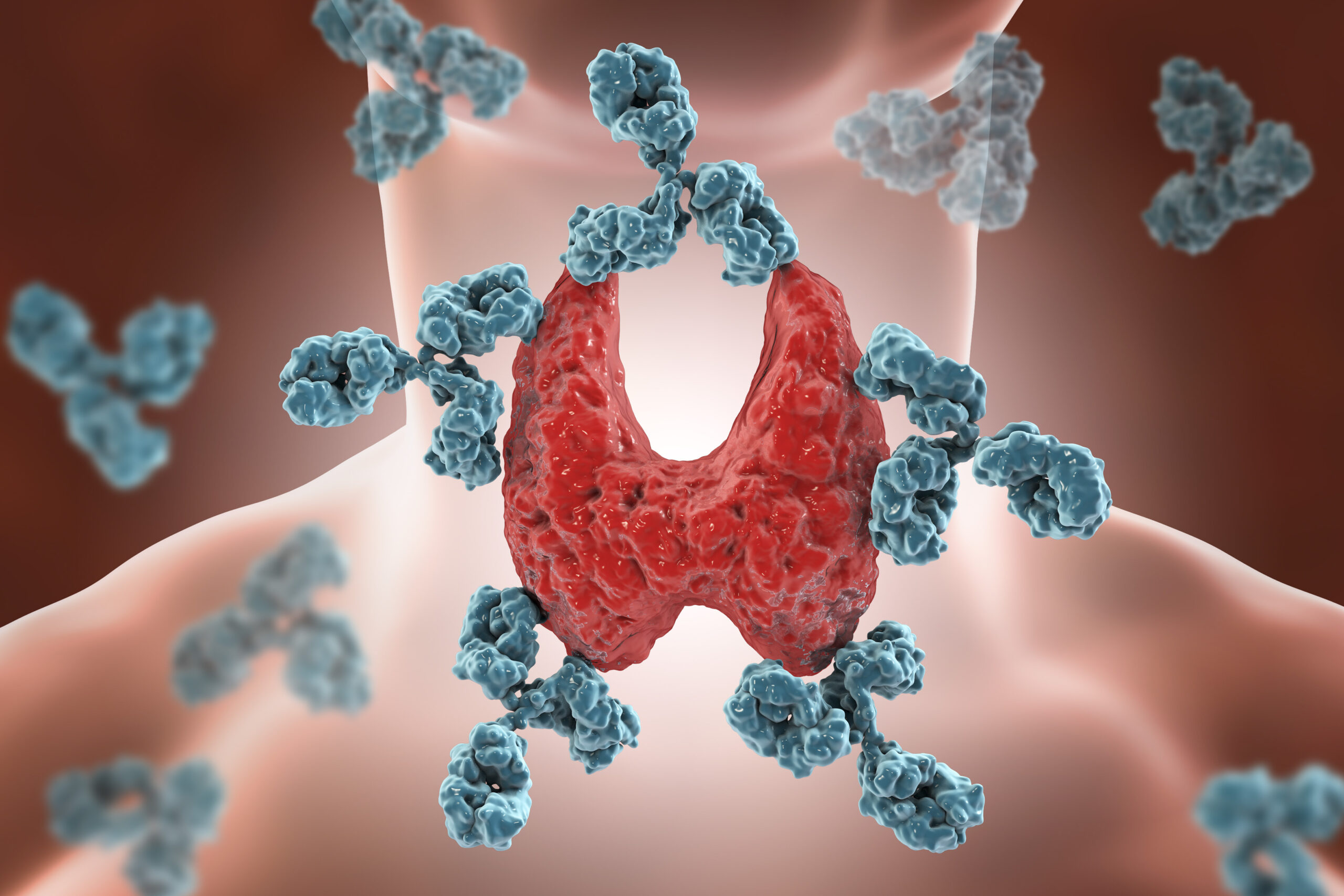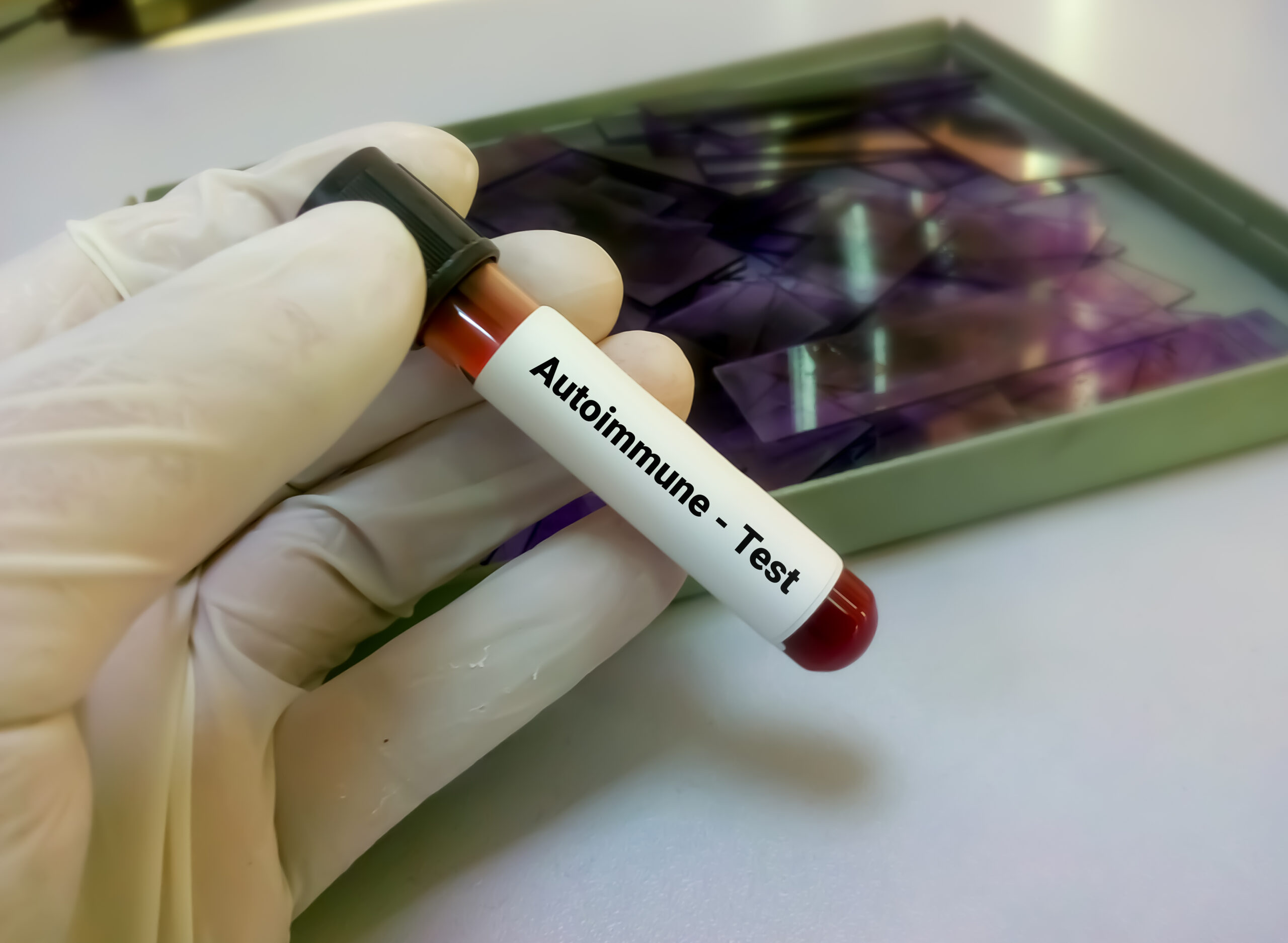Autoimmune diseases are a group of diseases characterized by improper functioning of the patient's immune system. The immune system is a system of special cells and organs that protect the body against diseases and infections.
The immune system has the remarkable ability to distinguish between its cells and foreign cells.
During autoimmune disease, specific immune system components mistakenly recognize the body's tissues as foreign and launch an attack against them using various immunological mechanisms. This can lead to the development of over 80 different autoimmune diseases. These disorders can target any tissue, organ, or system in the human body. While some autoimmune diseases specifically attack a particular organ or tissue, others have a more widespread impact, causing a range of troublesome symptoms for the patient. Additionally, individuals with autoimmune diseases may also have an increased risk of developing other conditions, including certain types of cancer.
The specific reasons behind the development of autoimmune diseases are still not completely known in many cases. Several factors, such as genetics, the environment, or certain infections, can potentially have an impact on their occurrence. Women are more than twice as likely to suffer from diseases related to impaired functioning of the immune system as men.

According to the National Institute of Health, over 24 million people![]() in the United States suffer from autoimmune diseases.
in the United States suffer from autoimmune diseases.
Autoimmune diseases can occur at any age in both sexes. Women get sick more often than men. Sometimes, one person has several autoimmune disorders.
People who have close relatives suffering from an autoimmune disease usually have an increased risk of developing the disease. This does not mean, however, that every person with a genetic predisposition to a given autoimmune disease will develop the condition.
The specific reasons behind autoimmune diseases remain largely unclear for numerous conditions. While there are detailed explanations of how these disorders arise from the immune system's attack on the body's own tissues, the exact trigger for immune system abnormalities is still being investigated by experts.
Genetic factors play an essential role in the development of autoimmune diseases. It is known that people with a family history of this type of disease are more likely to develop it. In some disorders, it was possible to identify genes in which mutations lead to the development of pathological changes (in type 1 diabetes, mutations occur in the gene responsible for the production of insulin in the pancreas).
Experts suspect factors that impact the onset of disease comprise exposure to UV radiation, specific chemical substances, and a lack of vitamin D.![]() Additionally, infection with certain pathogens can activate autoimmune conditions, although the mechanisms behind this remain incompletely understood.
Additionally, infection with certain pathogens can activate autoimmune conditions, although the mechanisms behind this remain incompletely understood.
Some factors make a person more prone to having autoimmune disease. Those factors include:
Autoimmune diseases may concern the whole body (such as systemic rheumatic diseases) or affect specific tissues and organs. Autoimmune diseases may be acute or chronic and may affect all organs and systems of the body.
Diabetes is a condition where there are high blood sugar levels. Long-lasting high blood sugar levels are associated with damage and failure of various organs, including the kidneys, eyes, nervous, and circulatory systems.
Type 1 diabetes mainly affects children and young people. Unlike type 2 diabetes, the development of which is primarily caused by obesity and an incorrect lifestyle, type 1 diabetes develops regardless of the patient's lifestyle.
The cause of type 1 diabetes is an autoimmune process in which the immune system mistakenly recognizes pancreatic cells as foreign and destroys them. The immune system produces antibodies that attack insulin-producing beta cells in the pancreas, damaging them. Insulin is a hormone that plays a crucial role in glucose (sugar) metabolism. When the pancreas does not produce enough insulin, glucose is not appropriately transported to the cells, and its concentration in the blood increases, causing hyperglycemia.
Symptoms include:
Rheumatoid arthritis is a long-lasting autoimmune condition that affects the connective tissue in the body. The cause of this disease is the improper functioning of the immune system – elements of the immune system identify the body's tissues as foreign and launch an attack against them using antibodies.
Rheumatoid arthritis starts with inflammation in the synovial membrane of the joints, which ultimately causes joint damage, deformity, and stiffness. A distinguishing feature of rheumatoid arthritis is its ability to affect multiple joints simultaneously. The most commonly affected joints are the hands, wrists, and knees.
Rheumatoid arthritis is a disease of the whole body (systemic illness), not just a disease affecting the joints, so symptoms may also affect the heart, lungs, and eyes.
Multiple sclerosis, or MS, is a neurological condition that impacts both the brain and spinal cord. This is another example of an autoimmune disease – in this case, the immune system attacks the layer surrounding nerves (myelin sheaths![]() ) and damages it. The myelin sheath is a protective layer that covers the nerves and helps with the transmission of nerve impulses. When the sheaths are absent or damaged, it can result in abnormal or impaired nerve conduction.
) and damages it. The myelin sheath is a protective layer that covers the nerves and helps with the transmission of nerve impulses. When the sheaths are absent or damaged, it can result in abnormal or impaired nerve conduction.
The symptoms that arise will vary depending on which area of the central nervous system is affected by the damage to the myelin sheaths. Multiple sclerosis may occur at any stage in a person's life. However, it is predominantly prevalent among young adults.
The symptoms of multiple sclerosis include:
Hashimoto's disease is thyroid gland inflammation caused by immune system malfunction.
During Hashimoto's disease, the immune system produces antibodies against the thyroid gland![]() . These antibodies attack the thyroid gland and destroy it, leading to hypothyroidism.
. These antibodies attack the thyroid gland and destroy it, leading to hypothyroidism.
The symptoms of Hashimoto's disease include:

Graves' disease is a condition affecting the thyroid gland that occurs when the immune system produces antibodies that attack the gland, binding its receptors and overstimulating it. This autoimmune disease results in the overproduction of thyroid hormones. As a consequence of this process, hyperthyroidism develops.
The first noticeable symptoms are usually typical of hyperthyroidism and are associated with accelerated metabolism. Symptoms include:
Lupus is an autoimmune disease of connective tissue. The first symptoms of lupus are not always specific. They often resemble symptoms of other illnesses. Some of them may be confused with the flu or other rheumatic disorders. Moreover, the symptoms do not occur constantly – the condition is characterized by periods of remission and exacerbation. In each exacerbation of the illness, the signs may look slightly different. The most common symptoms include:
Sjogren’s syndrome is an inflammatory autoimmune disease. It is a type of connective tissue disease.
It occurs when the immune system becomes activated, causing inflammation in various systems and organs. Inflammatory cells infiltrate the salivary glands, tear glands, and pancreas, impairing their functions. This leads to the development of symptoms like dry mucous membranes and dry eye syndrome. While Sjogren's syndrome![]() can affect individuals of any age, it is commonly diagnosed in older patients.
can affect individuals of any age, it is commonly diagnosed in older patients.
Celiac disease, also known as gluten intolerance, can manifest at any age but is commonly identified in children.
Gluten![]() , a protein found in cereal grains, triggers an abnormal reaction in the body of individuals with celiac disease. It infiltrates the mucosa of the small intestine, causing inflammation and hindering nutrient absorption. Moreover, the body produces antibodies against the substances present on the surface of the small intestine.
, a protein found in cereal grains, triggers an abnormal reaction in the body of individuals with celiac disease. It infiltrates the mucosa of the small intestine, causing inflammation and hindering nutrient absorption. Moreover, the body produces antibodies against the substances present on the surface of the small intestine.
The main signs of celiac disease are:
Celiac disease may also cause symptoms in organs other than the digestive system, such as the skin, nervous system, or reproductive system.
Myasthenia gravis is an autoimmune disease of the place where a nerve connects with a muscle, resulting in a disturbance in the transmission of impulses from the nerve endings to the muscles. As a result, excessive muscle fatigue occurs. It is an autoimmune disease in which antibodies the body produces attack the nerve and muscle connections.
The disease is characterized by muscle weakness. It is an abnormal, excessively rapid fatigue of the muscles, leading to their weakness, which disappears after rest. Various muscle groups may be involved in myasthenia gravis.
Addison's disease is caused by reduced production of hormone (cortisol) by the adrenal glands – a small organ located above the kidney. The condition is caused by an autoimmune process in which antibodies are formed against enzymes involved in producing adrenal cortex hormones![]() .
.
Pernicious anemia is another autoimmune disease in which the immune system attack is directed against the body's structures. The attacked protein is the intrinsic factor (IF)![]() or the stomach cells that produce it.
or the stomach cells that produce it.
The role of the intrinsic factor is to form a complex with vitamin B12 supplied with food, which in turn enables the absorption of the vitamin from the digestive tract into the blood.
Vitamin B12 plays a crucial role in various important functions within the human body. These include the production of red blood cells, the proper functioning of the nervous system, and the regulation of metabolic processes.
Therefore, vitamin B12 deficiency in pernicious anemia causes symptoms such as balance disorders, tingling and numbness in the limbs, deterioration of vision, weakness, shortness of breath, palpitations, and dizziness.
The symptoms of autoimmune diseases vary significantly in different diseases because the immune system's abnormal reaction can be directed against various tissues and organs. As a result of the immune system attacking a given organ, it may become inflamed and damaged, and its functions may be impaired.
Due to the inflammation that accompanies the abnormal response of the immune system, autoimmune diseases may result in general symptoms such as:
Symptoms are often non-specific in the initial phase of the disease.
Identifying antibodies that act against the body's tissues is crucial in diagnosing autoimmune diseases. Nonetheless, it's important to remember that not every antibody presence indicates disease onset – even healthy individuals can have these antibodies without manifesting any symptoms. Therefore, when diagnosing, the doctor always considers all the symptoms, their course, and test results.

Treating autoimmune disease involves using drugs that reduce the immune system’s activity (immunosuppressants) or inhibit inflammation, leading to tissue damage (anti-inflammatory medications).
Sometimes, the appearance of autoimmunity – an abnormal immune system response, is preceded by an infection. Then, the treatment will also include the use of drugs that treat the infection.
In some cases, treatment concerns the consequences of autoimmune disease if an abnormal immune system response has damaged a given organ and it no longer fulfills its function – e.g., treatment with insulin for type 1 diabetes or thyroid hormones in Hashimoto's disease.
If you have symptoms that may suggest an autoimmune disease or you are at risk of developing it (for example, due to a family predisposition), you should see your GP. If they deem it necessary, they will perform diagnostics and, if necessary, refer you to an appropriate specialist.
Depending on the type of autoimmune disease, different specialists may treat it, including: